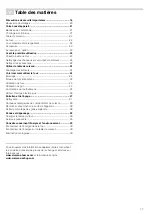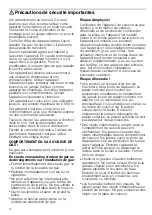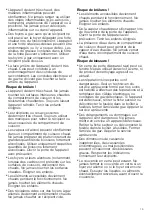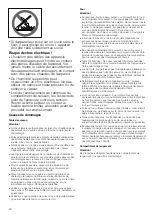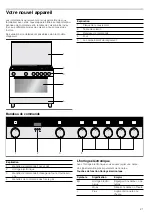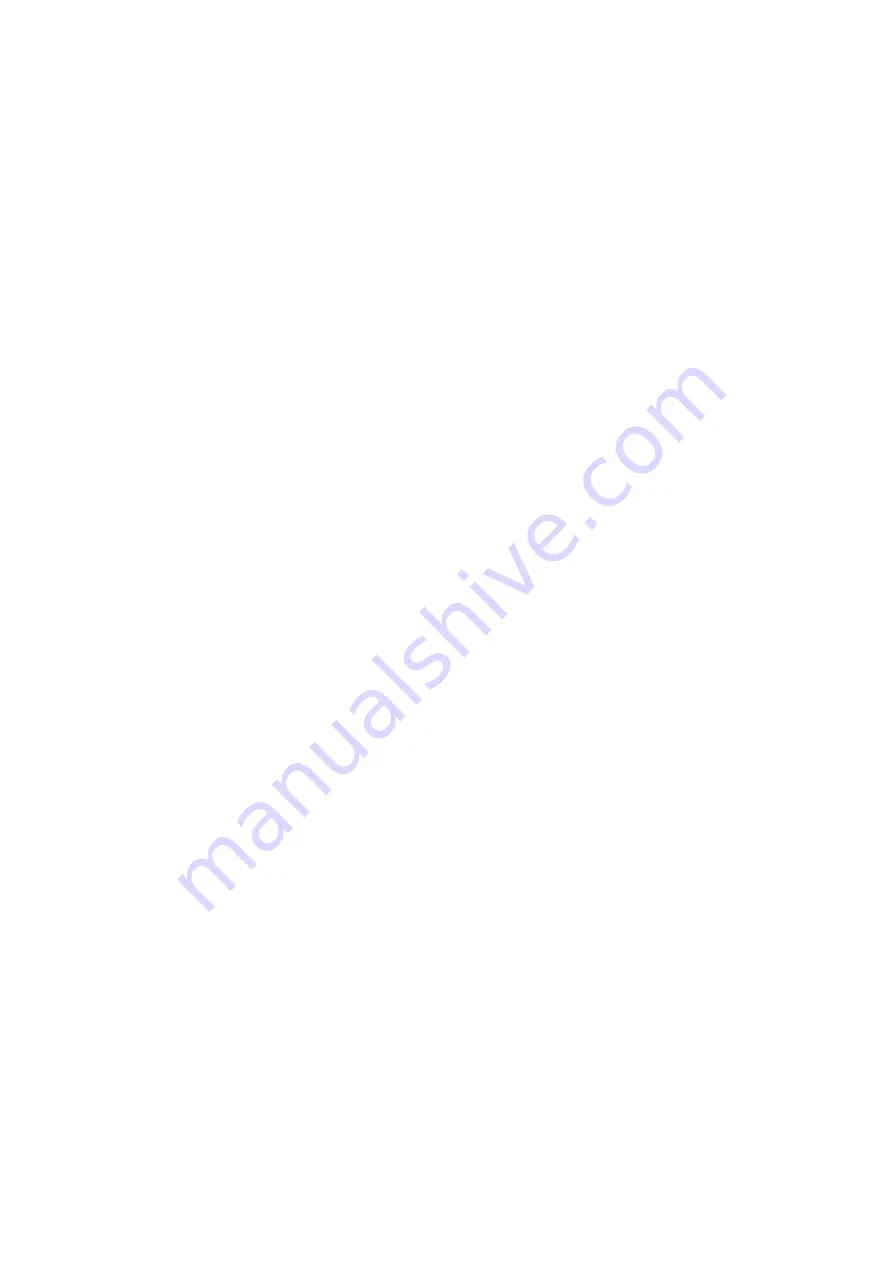
6
Causes of damage
Hob
Caution!
■
Only use the burners when cookware has been placed on
top. Do not heat up empty pots or pans. The saucepan base
will be damaged.
■
Clear up spills immediately. Use deep pots for dishes with a
lot of liquid. This will prevent the food from boiling over.
■
Do not use roasting dishes if they must be heated using two
burners. This will cause heat accumulation. The appliance
could be damaged.
■
Cooking on gas burners releases extra heat and moisture.
Adjacent units may become damaged over time. For long
cooking times, switch on the cooker hood or ventilate the
room.
■
Observe the manufacturer's instructions when using special
ovenware.Aluminium foil and plastic containers can melt and
stick on hot burners.
■
Place the pot or pan centrally over the burner. This will
optimise transfer of the heat from the burner flame to the pot
or ban base. The handle does not become damaged, and
greater energy savings are guaranteed.
■
Ensure that the gas burners are clean and dry. The burner
cup and ¶burner cap must be positioned exactly.
■
Ensure that the hotplate/burner is never switched on when
the hob cover is on, e.g. by children playing.
Oven
Caution!
■
Accessories, foil, greaseproof paper or ovenware on the
cooking compartment floor: do not place accessories on the
cooking compartment floor. Do not cover the cooking
compartment floor with any sort of foil or greaseproof paper.
Do not place ovenware on the cooking compartment floor.
This will cause heat accumulation. The baking and roasting
times will no longer be correct and the enamel will be
damaged.
■
Inserting accessories: depending on the appliance model,
accessories can scratch the door panel when closing the
appliance door. Always insert the accessories into the
cooking compartment as far as they will go.
■
Water in a hot cooking compartment: do not pour water into
the cooking compartment when it is hot. This will cause
steam. The temperature change can cause damage to the
enamel.
■
Moist food: do not store moist food in the cooking
compartment when it is closed for prolonged periods This will
damage the enamel.
■
Fruit juice: when baking particularly juicy fruit pies, do not
pack the baking tray too generously. Fruit juice dripping from
the baking tray leaves stains that cannot be removed. If
possible, use the deeper universal pan.
■
Cooling with the appliance door open: only allow the cooking
compartment to cool when it is closed. Even if the appliance
door is only open a little, front panels of adjacent units could
be damaged over time.
■
Heavily soiled oven seal: if the oven seal is heavily soiled, the
oven door will no longer close properly when the oven is in
operation. The fronts of adjacent units could be damaged.
Always keep the oven seal clean.
■
Oven door as a bearing surface: do not stand or place
objects on the oven door when it is open. Do not hang
objects on the oven door.
■
Carrying the appliance: do not carry or hold the appliance by
the door handle. The door handle cannot support the weight
of the appliance and could break.
■
Heavy accessories: do not pull out heavily laden accessories
too far without first unloading them sufficiently. Heavy
accessories will tip when pulled out. This causes pressure to
be exerted on the shelf supports in the cooking compartment,
which can damage the enamel. Relieve the strain on the
accessories when they are pulled out by raising them slightly
with one hand. Caution: always use an oven cloth or oven
gloves when handling hot accessories.
Storage compartment
Caution!
Do not place hot objects in the storage compartment. It could
be damaged.

















